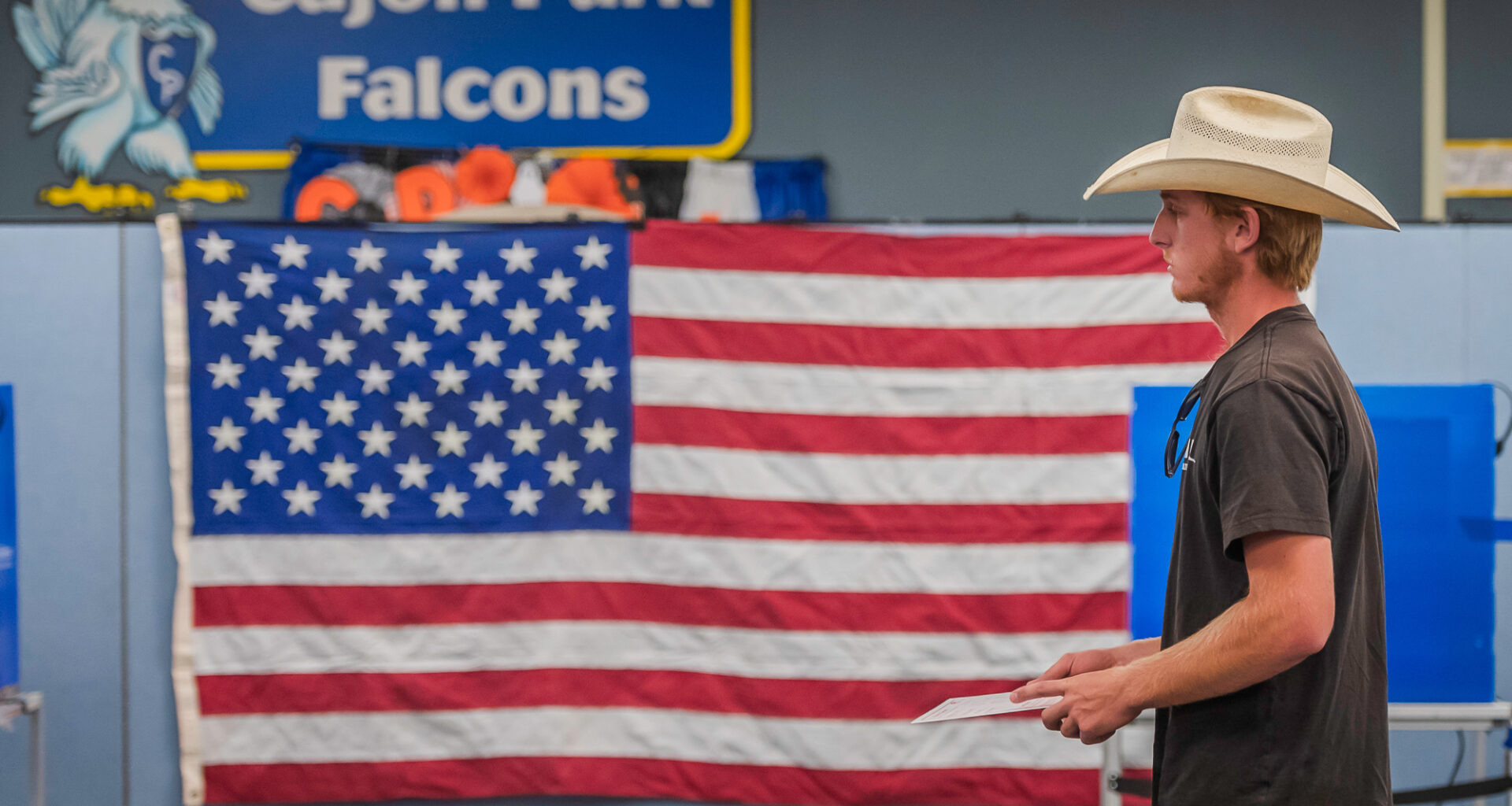As Nov. 4 nears, spending from supporters and opponents of Proposition 50 has drawn more attention as campaign dollars continue to grow.
Thirty-second ads featuring former President Barack Obama urging voters to check “yes” in favor of Proposition 50 and arguing that “democracy is on the ballot” hit screens this week as thousands of mail ballots continue to be turned in.
Proposition 50 – the ballot measure seeking to redraw the state’s U.S. House maps temporarily to give Democrats more seats in Congress – has continued to amass a lopsided amount of money and starpower on the “yes” side in the final days leading up to Election Day amid a fractured “no” response.
As we reported a few weeks ago, Republican congressmembers Rep. Darrell Issa and Rep. Ken Calvert risk losing their seats if voters approve. For Calvert – whose 41st congressional district would be taken entirely out of Riverside County and into Los Angeles County – it could mean running a primary against fellow Republican Rep. Young Kim in Orange County.
For Issa, his seat would become much more competitive by drawing in voters in Palm Springs, making for a less clear path to victory compared to last year when he was elected by nearly 20 percentage points.
The “yes” side has raked in $97 million to get voters to turn in their ballots for a special election, which historically have a lower voter turnout than midterm and presidential elections.
The measure, which was created in response to Texas Republicans’ push to create five additional House seats ahead of the 2026 midterm elections, is getting a large boost from the Democratic-led House Majority PAC, which alone has contributed nearly $11 million.
The “no” side has seen far fewer dollars and, with that, ads. With the help of billionaire Charles Munger Jr. and a Republican super PAC led by former Speaker Kevin McCarthy, the opposition has raised a combined $42 million, according to campaign finance disclosures. Republicans, including Munger, who helped create the state’s independent redistricting commission, have criticized the measure as hypocritical.
Democrats in Sacramento remain in lock-step on their support for Proposition 50 and continue to pitch it as a necessary move to oppose Texas’ gerrymandering.
Democratic Assemblymember Chris Ward reiterated his support for the measure at Voice of San Diego’s Politifest earlier this month, arguing that it was an “existential matter” for California residents.
“We have the power as California voters to be able to mitigate some of the impacts that we’re seeing from some of these other states,” Ward said. “We can have a shot at drawing maps that counterbalance what we are seeing in other states that brings fairness to the control of Congress.”
Democrats currently hold 43 of the state’s 52 congressional seats. They could capture up to 48 seats with the newly proposed districts.
AI Chatbots Get More Guardrails
This week, Gov. Gavin Newsom signed Chula Vista Democratic Sen. Steve Padilla’s bill to regulate AI chatbots to look for signs of suicidal ideation and require more guardrails around sexually explicit content for underage users. The governor also signed Sen. Catherine Blakespear’s housing bill to stop retail developers from using a loophole to circumvent zoning regulations meant to speed up affordable housing development.
The governor also signed legislation to ban ultraprocessed foods from school lunches over the next 10 years, as well as a bill aimed at curbing antisemitism in schools, which critics have said could chill speech.
Lawmakers reconvene in January.
Heightened Anxiety, Stress Three Weeks Into Federal Shutdown
The government shutdown continues to affect military service members and federal workers in San Diego as it enters its third week.
Groups dedicated to military families, such as the Support the Enlisted Project, or STEP, have continued to see an uptick in families using food banks amid uncertainty over whether workers will continue to receive a paycheck, according to David Boone, CEO and president of SDMAC.
“Everything’s predicated on how long this thing is going to go,” Boone said, adding that SDMAC has had to provide additional food distributions this month as a result of the shutdown. “We’re planning for the long haul.”
San Diego has 117,000 active military members and 34,000 civil servants, among the largest population in the country, according to federal data.
I’m looking to speak to a federal employee or military service member who has not received a paycheck as a result of the shutdown. I’d like to know it has affected your family. You can email me at nadia@voiceofsandiego.org.
What I’m Reading
KPBS takes a look at lawmakers’ push to create a task force for a new public university in Chula Vista.
As Vice President J.D. Vance prepares to visit Camp Pendleton this weekend, he’ll face government workers straining for help, Politico reports.
The Los Angeles Times explains why California joined several other states in a lawsuit against the Trump administration for phasing out a program meant to help low-income households buy solar panels.
Thanks for reading the Sacramento Report, as always. If you have any tips or story ideas for my newsletter, please send them to: nadia@voiceofsandiego.org.

